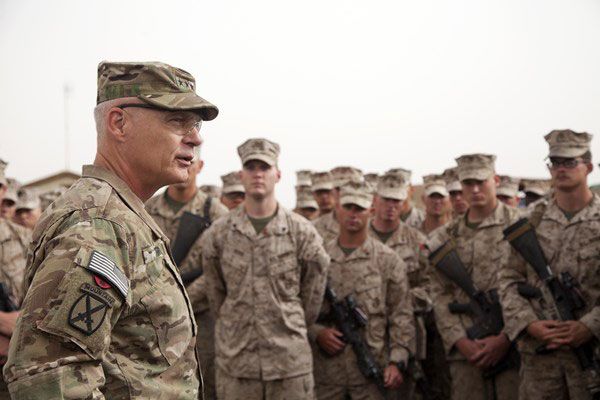On Coaching and Leadership

Coaching requires a great understanding of leadership that is rarely taught in any kinesiology or exercise science coursework. You will rarely find it taught in any conference or certification body. It is often only developed through personal growth or obtained from other coaches who’ve been in the field and have gained that wisdom firsthand.
Many young coaches e-mail and shadow our strength & conditioning department at Wichita State University and walk away with the impression that we’ve always been natural-born leaders. While I think there are some Nature vs. Nurture elements to it, leadership is a skill that can be taught and needs to be practiced often in order to maintain an optimal level of proficiency.
Shorten the Feedback Loop. Great coaches who are out in the trenches day-to-day need to separate themselves from the craziness of daily tasks and to-do’s and clear the mind in order to see the bigger picture. Great coaches need the ability to see exactly where the team/staff is at and organize everyone onto the same page. To do so, give feedback to your team as fast as possible and regularly ask for theirs.
Learn how to motivate. Knowing how to motivate is equal parts Art and Skill. Recognize that people are driven differently. You have to KNOW your team, athletes, and staff. Some people respond better to challenges, others to praise, and some frankly need a strong leader that sets a tone. Knowing what drives your team is the single-most important element that builds great chemistry and morale.
Be disciplined. Get use to making tough choices. As a leader, you have to keep your team and staff organized and all “walking in lockstep” towards a common goal. Tough choices are not always the most popular choices. Develop tough skin and get use to doing what’s best for the team versus doing what’s best for the individual. Acting with discipline of leadership will prevent wishy-washiness. Set a standard of excellence and consistently hold yourself and your team to that level. Failure to do so only results in lowering your expectations for yourself as a leader and that of the team.
Be a student. Things change. Fact. As science continues to improve and our responsibilities grow as a strength & conditioning profession, team leaders must stay abreast to the current topics and literature. Within that last year newer technology like heart rate variability via BioForce, OmegaWave hit critical appeal. Technological innovations provide greater strength & conditioning relevant data that we must now consider as a training tool. Spending a few minutes each night researching current strength & conditioning topics will help develop your relevant knowledge base. Never grow complacent.
Be a great team leader and a great teammate. Most people are not born a great leader. As I mentioned earlier, some people may be more inclined to gravitate towards the leadership position, but in most cases, leadership skills are either taught or learned subconsciously. Leadership lessons are not often developed nor taught systematically. One trend that is consistent through most leaders is that they have been in a position that required someone else to LEAD them. Finding a mentor and learning as much as you can from him or her is one of the best ways to develop your leadership strategies. Learning how to be led is absolutely as critical as to learning how to lead. When you are in a position of authority as a leader, make sure to to allow for a little “following” during your sessions. This will help build team morale, develop other future leaders, and keep you humble.
Learn to delegate. You will be stretched very thin and "People want the impossible from you and you just have to give it to them". The best leaders TRUST the people they surround themselves with. Great leaders select the right people in order to do what needs to be done; and have the self-restraint and composure to keep from micromanaging them while they do it. Enlist great help whether paid-staff or volunteer interns.
